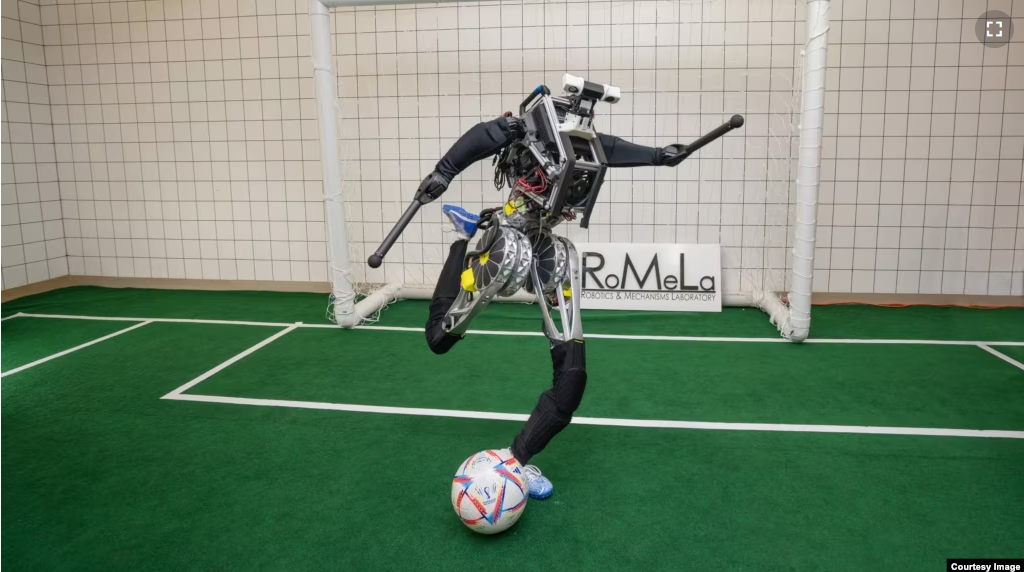American researchers have built a human-like robot that will take part in an international soccer competition in France in July.
A team at the University of California, Los Angeles developed the soccer-playing machine.
The name of the robot is ARTEMIS, which stands for Advanced Robotic Technology for Enhanced Mobility and Improved Stability. It stands 142 centimeters tall and weighs 38 kilograms.
The researchers said ARTEMIS is one of only a few humanoid robots that can run. It can also jump and walk on different kinds of surfaces without losing its balance. The robot also can kick a ball and remain standing even when kicked or hit, the team said.
The engineers who built the robot said it can walk at a speed of 2.1 meters per second. This could make ARTEMIS the world’s fastest walking humanoid robot, the researchers said.
The team said the goal of the project was to create a robot that can perform many human-like activities, particularly playing the sport of soccer.
To do this, engineers said they modeled the devices that control the robot after human muscles. ARTEMIS uses a series of sensors and cameras to help it move and position itself.
Dennis Hong is a UCLA professor of engineering and the director of the university’s Robotics and Mechanisms Laboratory.
He explained in a statement the reason ARTEMIS can keep good balance even when walking and running over uneven surfaces. It is because the robot is “getting both feet off the ground while in motion,” Hong said. He added, “This is a first-of-its-kind robot.”
Another difference between ARTEMIS and other humanoid robots is that it is controlled electrically instead of by hydraulics, the researchers said. The developers said this makes the robot quieter and cleaner running.
The team behind the robot is continuing to test ARTEMIS to prepare for the international RoboCup competition set for July in Bordeaux, France. Student researchers often take the robot on walks around the UCLA grounds. Over the next few weeks, they will work on perfecting the robot’s soccer playing skills.
“If your robot cannot even play a game of soccer, how would you be able to use these robots for more important things, such as saving people’s lives?” Hong said. He noted that the same technologies used for soccer playing robots are also being used to develop robots to assist with firefighting and disaster operations.
One member of the team, student Justin Quan, said his personal goal is engineering robots that can improve people’s lives. “Seeing these robots helping push the robot technology to that next level is really rewarding because you’re like, oh, the dream, it gets closer,” he said.
I’m Bryan Lynn.
Reuters and UCLA reported on this story. Bryan Lynn adapted the reports for VOA Learning English.
______________________________________________________________
Words in This Story
hydraulics – n. a system of using fluid to produce power
rewarding – adj. making you feel satisfied that you have done something well
